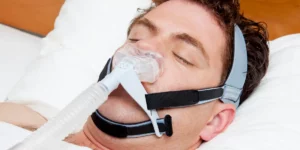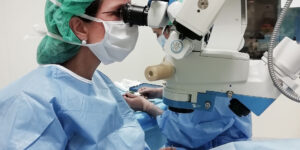
Does weight loss eliminate sleep apnea?
Dec 30 2022 Sleep Apnea Treatment how does sleep apnea happen sleep apnea australia sleep apnea solutions sleep apnea symptoms sleep apnea treatmentHave you lately begun experiencing headaches when you first wake up? Even after getting what you would have thought to be a decent night’s sleep, do you often feel exhausted? If this describes you, you can suffer from a disorder called sleep apnea. Your spouse could have seen the red flags that anything was awry while you were asleep.
Breathing disturbances during sleeping are a very typical symptom of the disease known as sleep apnea. The most prevalent kind of sleep apnea, obstructive sleep apnea (OSA), is characterized by disturbed breathing brought on by a constricted or occluded upper airway. To breathe through a straw is how it feels. A person with severe OSA may have up to 30 breathing interruptions per night.
Many significant connections between sleep apnea symptoms and excess body weight are emerging as the medical community learns more about this condition. Not only may being overweight cause sleep apnea, but it can also make the condition worse and have a negative impact on one’s health. The vicious cycle of inadequate sleep and weight gain may occur. Fortunately, several studies have shown that losing weight helps with sleep apnea. It’s critical to comprehend the intricate relationships between sleep apnea and obesity if you suffer from either illness.

How Obesity Affects Sleep Apnea
Although a number of medical problems enhance the risk of having sleep apnea, overweight or obese persons are more likely to get OSA. Pharyngeal fat is a kind of fat deposit that develops as a result of being overweight. When the airway is already relaxed during sleep, pharyngeal fat might obstruct the upper airway. Given that air is physically being forced into a narrowed airway, snoring is one of the most prevalent sleep apnea symptoms.
In addition, a person’s chest wall may be compressed due to greater abdominal girth from extra fat, resulting in a reduction in lung capacity. This decreased lung capacity decreases airflow, increasing the risk of the upper airway collapsing as you sleep. A increasing body mass index (BMI), which calculates a person’s body fat based on height and weight, is associated with an increased risk of OSA. The risk of OSA increases sixfold with even a 10% weight gain.
Less frequent factors that contribute to sleep apnea include big tonsils that obstruct the airway, physical characteristics like a large neck or small throat, endocrine illnesses (including diabetes and thyroid disease), acid reflux, lung conditions, and heart issues. But between 60 and 90 percent of persons with OSA are overweight.
Effects of obesity and sleep apnea on health
Patients with sleep apnea significantly stress their cardiovascular, metabolic, and pulmonary systems because they don’t get enough good sleep. This may be especially concerning for obese individuals since obesity might increase the risk of metabolic, lung, and cardiac issues, perhaps exacerbating their existing health issues.
Cardiovascular Health and Sleep Apnea
A person’s whole cardiovascular system is impacted by sleep apnea in a number of ways. The body’s oxygen level reduces each time there is a breathing pause, setting off the “fight or flight” reaction. The reaction causes a spike in blood pressure and a rise in heart rate, which wakes the person up and forces them to reopen their airway. Throughout the night, this cycle keeps repeating. Atherosclerosis, or the build-up of plaque in blood arteries, which is linked to heart attacks, strokes, and high blood pressure, may develop as a result of the cyclical rising and decreasing blood oxygen levels.
The component of the neurological system that regulates pulse and blood flow is disturbed by sleep apnea, and it also raises blood glucose and carbon dioxide levels, increases insulin resistance, and modifies the flow of oxygen and carbon dioxide. As a consequence, among other things, sleep apnea is linked to the following cardiac, lung, and metabolic issues:
- Hypertension (high blood pressure), Heart failure, among other arrhythmias, including atrial fibrillation
- Transient ischemic attacks (TIAs), commonly referred to as “mini-strokes,” and stroke
- Metabolic syndrome; Type 2 diabetes; Coronary heart disease (obesity, hypertension, diabetes, and dyslipidemia)

Sleep apnea and obesity hypoventilation syndrome
In persons with obese hypoventilation syndrome, OSA is commonly present (OHS). OHS occurs when a person’s chest wall is compressed due to excess weight, making it difficult for them to breathe deeply and rhythmically. Even while up to 90% of OHS sufferers also have sleep apnea, not everyone with OSA also has OHS. OHS risk is associated with BMI, and it increases to approximately 50% in those with BMIs above 50.
OHS, like sleep apnea, may increase carbon dioxide levels in the blood while lowering oxygen levels and leading to high blood pressure and heart failure. Both of these disorders significantly increase the risk of cardiovascular disease in patients. Unfortunately, the risk of mortality is higher in OSA patients with severe OHS.
What does sleep apnea talk about?
When you continually lose consciousness and stop breathing while you’re sleeping, you have a condition called sleep apnea. You may go without breathing for anything between a few minutes and a few seconds at a time. Sleep apnea may have a significant detrimental impact on a person’s health and wellbeing, even though it often does not endanger life.
According to studies, those who have sleep apnea are far more prone to have difficulties including heart attacks and other cardiovascular issues. Given the seriousness of this condition, you are definitely interested in the available treatment options. For instance, you may have heard that for some individuals, losing weight might help cure or support sleep apnea. Is that correct?
Putting on weight and having a sleep disorder
The results of recent research suggest that there may be a considerable association between obesity and sleep apnea. In fact, if you are overweight, you can be more likely to run into this kind of issue. Obese persons are more likely to have sleep apnea, although not all of them do. Similar to the last point, not everyone with sleep apnea is overweight. In light of the aforementioned, you should seriously consider arranging a medical examination if you are overweight.
This will determine whether or not weight loss might be advantageous for you. Typically, this entails measuring around the area of the neck that is the widest. In general, when a person’s neck circumference is 17 inches or greater in men and 16 inches or higher in women, their chance of having sleep apnea is greatly raised.

Does losing weight reduce sleep apnea?
If you are overweight, it is possible that losing a little amount of weight will be enough to completely cure the illness. On the other hand, owing to the fact that there are anatomical factors at play, this won’t always be the case. One can have large tonsils, a crooked nasal septum, or a receding chin. These are all illustrations of aberrant face features. Even with significant weight loss, none of these issues will be resolved; sleep apnea is only one of the probable side effects of being overweight. However, losing a few pounds may also have a variety of other advantageous effects.
It may improve your joints, relieve any high blood pressure issues you may be experiencing, and give you noticeably more energy. Therefore, losing weight is never going to be a bad idea, and it most definitely won’t make your sleep apnea worse. In the long term, it can only improve matters.
Is it more difficult to keep a healthy weight?
According to several research, those who have sleep apnea may find it more difficult to lose weight. This is because it slows down your metabolism, which in certain cases may prevent you from losing any weight at all. The research’s results indeed seem to go in this manner. Because of this, it’s essential to make sure that you are addressing your sleep apnea before you start making commitments to attempt to lose weight.
Your ENT will be able to advise you on this decision and make sure you have the best possible chance of reaping the rewards of taking this move. Sleep apnea may be treated using a broad range of medical strategies.
The most common kind of therapy is likely continuous positive airway pressure, or CPAP. The majority of the time, a machine that may be positioned near to the user’s bed helps with this. Making progress toward your weight reduction objectives may be more difficult due to the pressure the sickness puts on your body. Examples of this condition include glucose intolerance, insulin resistance, and blood pressure increases.
In some situations, an ENT may advise surgery to make it easier for you to lower your total body fat percentage.
Alternative forms of therapy
It is crucial to be informed that there are more sleep apnea treatment choices. For instance, you can spend money on a device that not only makes it possible for you to breathe regularly but also ensures that it is not limited in any way. A mask like this may be rather expensive since it either uses electricity or a pump-based mechanism to work.
You can also consider having surgery in a similar vein. Be aware that not everyone will have the chance to pick this route. Your unique situation and the cause of your sleep apnea will dictate what to do. If this course of action is the right one for you, your ENT will be able to advise you on it.
Whether or whether you need therapy for the condition depends on the severity of your sleep apnea, the existence or absence of symptoms like daytime fatigue, and any other current health issues. If you have risk factors for cardiovascular disease, for example, your doctor could opt to treat your sleep apnea even if it is just mild. On the other hand, even if you don’t feel weary at all, your doctor may advise that you receive treatment if you have a significant case of sleep apnea.
The therapy option that is most often suggested is the continuous positive airway pressure (CPAP) machine. A Continuous Positive Airway Pressure (CPAP) machine works as you sleep to provide air pressure that keeps your neck wide by delivering moist air via your nose. There are no breaks in the breathing as a result.
According to Jun, “Continuous positive airway pressure (CPAP) is the treatment of last resort, and it is extremely effective. Researchers at Johns Hopkins University have looked at what happens to sleep apnea patients who do not utilize their CPAP machines and discovered some startling results. The study’s conclusions indicate that the apnea that resulted raised blood sugar levels as well as heart rate, blood pressure, and stress hormones. This is a similar response to what may happen if you were to speak in front of a huge crowd. It’s essentially the same as that type of stress response, claims Jun. The author states, “I would compare sleep apnea to something that happens on a nightly basis like that.”
Related: Finding it hard to tackle your sleep apnea? Do this




